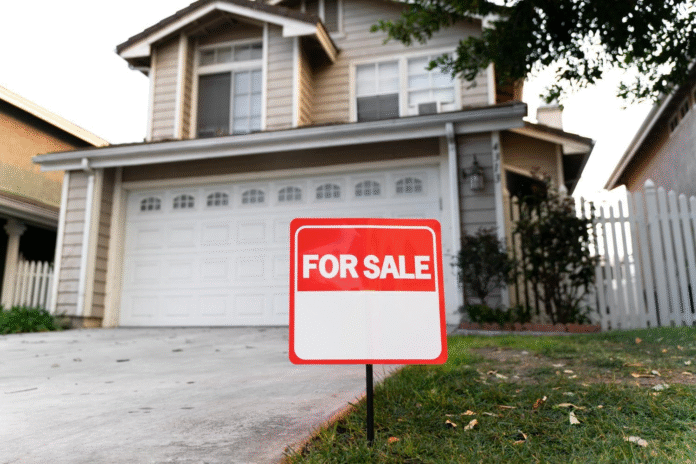One of the biggest questions homeowners face is whether to sell their current property before buying their next one. Both strategies—selling first or buying first—come with financial, practical, and emotional considerations.
The right choice often depends on your personal circumstances, the housing market, and your financial flexibility.
Table of Contents
The case for selling first
For many homeowners, selling before buying is the safer and more straightforward option. It gives you financial certainty and reduces stress when planning your next move.
Clearer financial picture
The benefit of selling your house first is that once your home is sold, you’ll know exactly how much equity you have to put toward your next property.
This clarity helps set a realistic budget and prevents the risk of overcommitting on your new home.
No double mortgage pressure
It’s not a secret that carrying two mortgages at once can be financially draining.
By selling first, you avoid juggling two large repayments, especially if your old property takes longer to sell than expected.
That’s why by putting your Paddington house for sale, you avoid the financial strain of holding two mortgages simultaneously.
Stronger buyer position
With cash in hand (or pre-approval based on your sale), you become a more attractive buyer. Plus, sellers are more likely to negotiate with someone who doesn’t have to wait for another property to sell.
Cons of selling before buying
Every set of advantages usually comes with some disadvantages. Some of the downsides of selling before buying that you might face include a housing gap, potentially having to move twice, and pressure to find a new place quickly.
You may face a housing gap if you haven’t secured a new home in time, meaning temporary rentals, storage costs, or even a double move.
The pressure to find a new place quickly can sometimes lead to rushed decisions.
You may miss out on the perfect home if none are available when you’re ready to buy.
The case for buying first
For some homeowners, buying before selling feels like the less stressful path. It ensures you won’t be left scrambling for a place to live and allows for a smoother transition into your new home.
No housing gap
If you decide not to sell your old house before buying the new one, you can move directly without needing short-term rentals or storage.
This makes the process easier on families, especially those with kids, pets, or large households.
Time to find the right property
Yet another benefit of buying first is the time you have to shop around. You can take the time you want to look for your next home without the pressure of having already sold.
This flexibility is particularly valuable in competitive markets, where properties sell quickly, and you don’t want to miss out.
More comfortable move
Additionally, with your next property secured, you can plan your move at your own pace rather than rushing to align settlement dates.
Potential downsides of buying without selling
We can’t move on without mentioning the potential downsides of buying before selling. One of the greatest concerns is that you may end up carrying two mortgages at once if your current home doesn’t sell quickly. Additionally, the stress and cost of managing two properties simultaneously.
Similarly, to avoid financial strain, some homeowners are forced to accept lower offers just to offload their old property.
Buying first usually requires greater financial capacity, access to savings, or approval for a bridging loan.
Key considerations
Deciding whether to sell first or buy first isn’t just about preference. It often comes down to market conditions, financial readiness, and lifestyle needs. Here are the main factors to weigh before making your move.
Market conditions
When it comes to a seller’s market, homes often sell quickly and for strong prices. Selling first is less risky because you’re more likely to find a buyer quickly.
On the other hand, it may take longer to sell your property, so buying first could be safer to ensure you secure your next home.
Financial situation
Before making big decisions, ask yourself whether you can comfortably cover two mortgages if needed. Also, find out if you qualify for a bridging loan to temporarily finance both properties.
Keep in mind that if your finances are tight, selling first gives you a clearer budget and reduces stress.
Timing and flexibility
How flexible are you with settlement dates? Can you negotiate a long settlement on your sale (giving you time to buy) or on your purchase (giving you time to sell)?
Conclusion
There’s no one-size-fits-all answer. Selling first offers financial clarity and less risk, but may leave you temporarily without a home. Buying first provides convenience and stability but requires greater financial strength and risk tolerance.
Want to know about ‘The Timeless Elegance of Gray Brick Houses‘ Check out our ‘Real Estate‘ category.



























